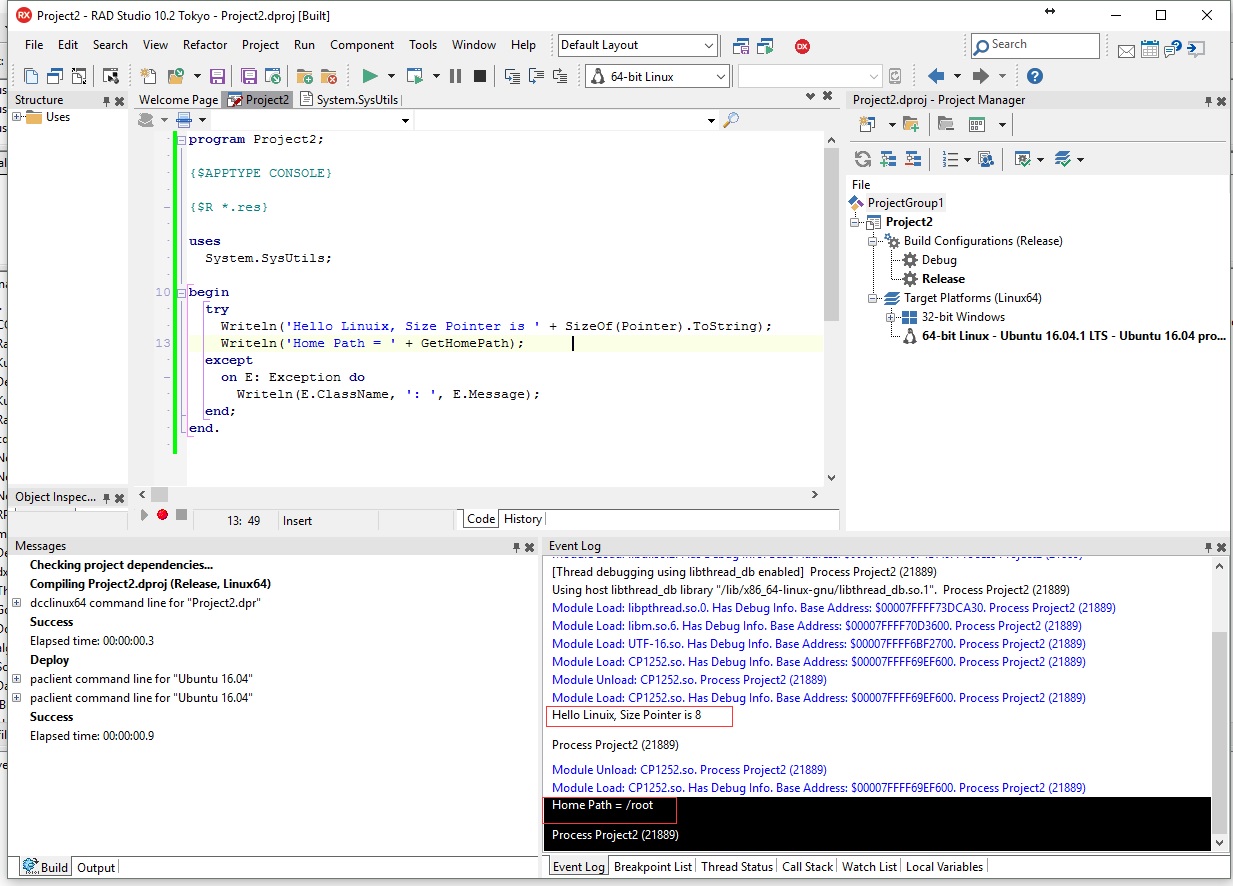Delphi Compiler Versions
This topic explains how to prepare applications created with Embarcadero Delphi XE for AQtime. To learn how to prepare applications created with other Delphi versions, see. To prepare a Delphi XE application for AQtime, you must first ensure that it includes debug information. Follow these steps: • Open your Delphi project in Delphi XE. • Activate the configuration that you use to build the debug version of your application. To do this, right-click the Project_Name > Build Configurations > Debug Configuration node in the Project Manager and select Activate from the context menu. Note: You can build your application in any configuration, not just in the debug one.

We choose the debug configuration to make sure the changes that will be made to compiler settings will not affect the release configuration that is typically used to build the final version of applications. • Choose Project > Options from the main menu to open the Project Options dialog. • In the Build Configuration combo box, select your debug configuration.
This will quickly load the settings used for debug builds. • To set the compiler options, select the Delphi Compiler > Compiling category from the tree view on the left of the dialog. • Set the Stack frames option to True in the Code generation group. • To include symbolic debug information, set the Debug information option to True in the Debugging group. • To view the variables, which are local to procedures and functions, set the Local symbols option to True in the Debugging group. • If you want to profile VCL classes, for example, TDataset, set the Use debug.dcus option to True in the Debugging group.
Otherwise, AQtime will only be able to profile the classes that are defined in your application. Click the image to enlarge it. If you want to use the Build with runtime packages option (for instance, to control the exe size), you can still use the Allocation profiler. When you include your application in an AQtime project, you will also have to include the System32 RTL150.BPL file. To add a module to an AQtime project, press Add Module on the Setup toolbar or select it from the Setup context menu. • Once you have set the compiler and linker options correctly, rebuild your application and it will be ready for profiling.
Every day, I am asked questions about migration from versions as old as 15-20. Modern Delphi is able to compile code to target Windows 32-bit and 64-bit,. Delphi compiler directives Each Delphi compiler directive is classified as either a switch, parameter, or conditional compilation directive. A compiler directive is a comment with a special syntax.

If you are profiling an ActiveX control or a COM server however, you should register its “debug” version in the system (See ). When your application is ready for release, remember to recompile it without debug information to reduce the application size.
Delphi Compiler Defines
Note: AQtime is incompatible with some third-party tools that modify the binary code of your application (for example, those that add a custom exception handling mechanism). An example of such a tool is EurekaLog. We recommend that you profile your application before processing it with such tools.
Delphi Compiler Versions
Delphi 2010 (code-named Weaver, aka Delphi 14; there was no version 13), was released on August 25, 2009 and is the second Unicode release of Delphi. It includes a new compiler run-time type information (RTTI) system, support for Windows 7 Direct2D, touch screen and gestures, a source code formatter, debugger visualizers and the option to also have the old style component palette in the IDE. The new RTTI system makes larger executables than previous versions.